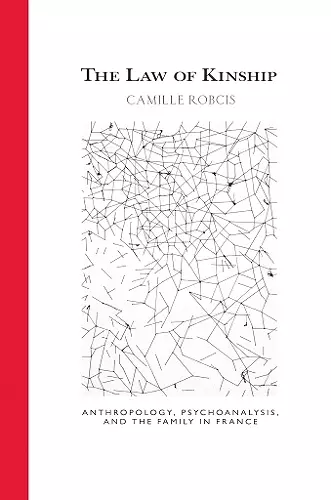The Law of Kinship
Anthropology, Psychoanalysis, and the Family in France
Format:Paperback
Publisher:Cornell University Press
Published:5th Apr '13
Currently unavailable, and unfortunately no date known when it will be back

In France as elsewhere in recent years, legislative debates over single-parent households, same-sex unions, new reproductive technologies, transsexuality, and other challenges to long-held assumptions about the structure of family and kinship relations have been deeply divisive. What strikes many as uniquely French, however, is the extent to which many of these discussions—whether in legislative chambers, courtrooms, or the mass media—have been conducted in the frequently abstract vocabularies of anthropology and psychoanalysis.
In this highly original book, Camille Robcis seeks to explain why and how academic discourses on kinship have intersected and overlapped with political debates on the family—and on the nature of French republicanism itself. She focuses on the theories of Claude Lévi-Strauss and Jacques Lacan, both of whom highlighted the interdependence of the sexual and the social by positing a direct correlation between kinship and socialization. Robcis traces how their ideas gained recognition not only from French social scientists but also from legislators and politicians who relied on some of the most obscure and difficult concepts of structuralism to enact a series of laws concerning the family. Lévi-Strauss and Lacan constructed the heterosexual family as a universal trope for social and psychic integration, and this understanding of the family at the root of intersubjectivity coincided with the role that the family has played in modern French law and public policy. The Law of Kinship contributes to larger conversations about the particularities of French political culture, the nature of sexual difference, and the problem of reading and interpretation in intellectual history.
All in all, this is a superb book that brilliantly links two fields—intellectual history and the history of law and policy—normally kept separate. In particular, Robcis is to be congratulated for not reproducing what often seems the willful obscurity and grandstanding of Lacan and others. Most important of all, Robcis finds her way though two exceptionalclaims to universal validity—French republicanism, which prioritizes the social bond, and American liberalism, which prioritizes the individual, without succumbing to the provincialism and tendentiousness of either.
-- Eli Zaretsky * The Journal of Modern History *Robcis is a careful, deliberate worker in this book. She moves ably from source to source, establishing arigorous and convincing narrative of the place of the family in republican ideals in the modern period,and is equally adept at drawing evidence from ministerial documents, philosophical engagements, andpolitical platforms.
-- Richard C. Keller * H-France Revi- Winner of Winner of the 2014 Berkshire Conference First Book.
ISBN: 9780801478772
Dimensions: 235mm x 155mm x 19mm
Weight: 454g
320 pages